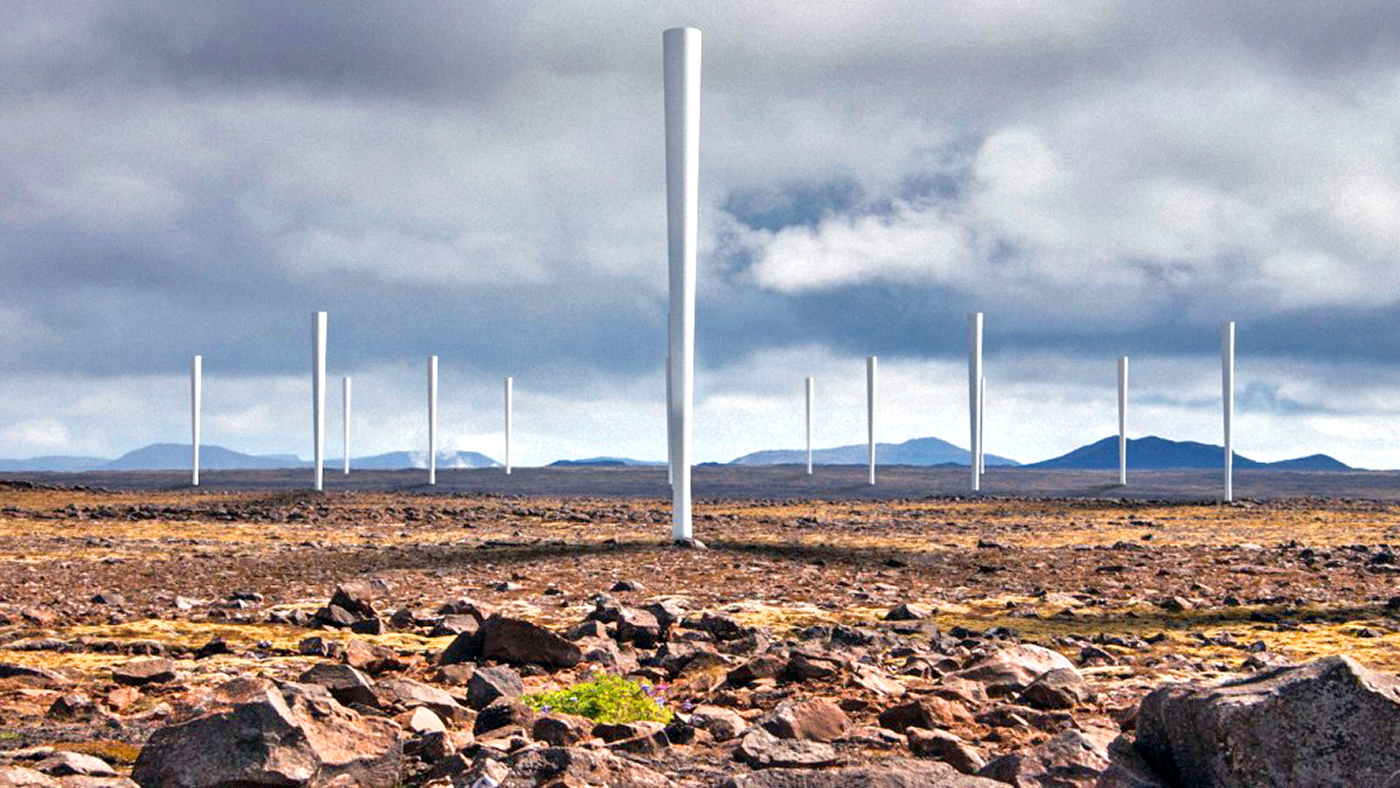Let's see...what is being researched?
using different colors on the vanes to discourage birds from deliberately targeting them (they do...the pure white vanes attract birds, who go for the bright stuff, since bright stuff normally attracts insects). You mention siting...and that seems to be the most important thing. Before installing windfarms, a study needs to be done of migratory patterns to see if those will be disrupted unduly. Mountain passes and wetlands are Bad Ideas, as are ocean based windfarms too close to a coast. Mountains and wide valleys seem to be better, as long as the farms don't fill the valleys entirely, or cover the mountains completely. Radar systems which can identify large flocks and shut the system down before one arrives. Different turbine designs...the ones that have the vanes close to the post...or no blades at all. THIS one is really promising in a number of areas. If they work, they are a win/win/win for everybody:
Or this one:
Which I happen to think is incredibly ugly, but....the company that built it has a 'windfarm' using these things on a primary nesting site, an island off Hawaii, that is used by a very endangered species of gull. The gulls don't seem to mind it a bit. This design is especially good for areas with low windflow, making wind produced energy more accessible to more people.
Maybe we could decorate it somehow?
Whatever...windfarms CAN be made safer for wildlife; the first picture, above, is an example of wind turbines that is not only more efficient than bladed windmills, but cheaper to install, cheaper to maintain, and because of their design, one can install many more of them in the same space as traditional bladed turbines.
Individual bladed windmills don't seem to be a problem. Birds can, and do, avoid them. it's only when they are grouped together in square mile areas that they become a problem.
Oh...and don't swallow the propaganda of the wind energy people completely. I mean, really...how many of you would take the tobacco growers as a good source for information on lung cancer?
Turns out that, while the claim made by the proponents of wind energy is that the loss of wildlife due to wind farms is negligible...or at least, acceptable in comparison to everything else that kills them, that's not, quite, true. Here is a report that tells us that birds do not, as claimed, fly above windfarms when they migrate; they actually fly right at the things.
USFWS: Avian Radar Project - Migrants and Wind Power
Notice; that study isn't by an opponent of wind power. Not by the Audobon Society. It's a government radar study .
So I really am having problems understanding the attitudes of the critics in here; they seem to be so passionate about global warming and wanting to get rid of fossil fuels (except of course for their own cars, I bet..) but are quite blase' about the damage done to wildlife by their own pet methods.
But nothing is perfect. Pretending that windpower and/or solar power has no problems that need addressing is every bit as short sighted as claiming that the fireplaces in London didn't hurt the air.
I am, frankly, both surprised.....and yet not surprised. I had hoped that some of you actually were interested in the ecology of the planet and the good of the wildlife around you, when in reality those who have responded to me have proven that they are only interested in their political rah rah partisanship. you want wind power? Well, so do I. I love solar power; I have panels on my roof. I'm all for good air quality and taking care of the creatures that share the planet with me.
So...why aren't those who are arguing with me here thinking about ways to make wind power safer, instead of insulting me because that's what I want to do?


